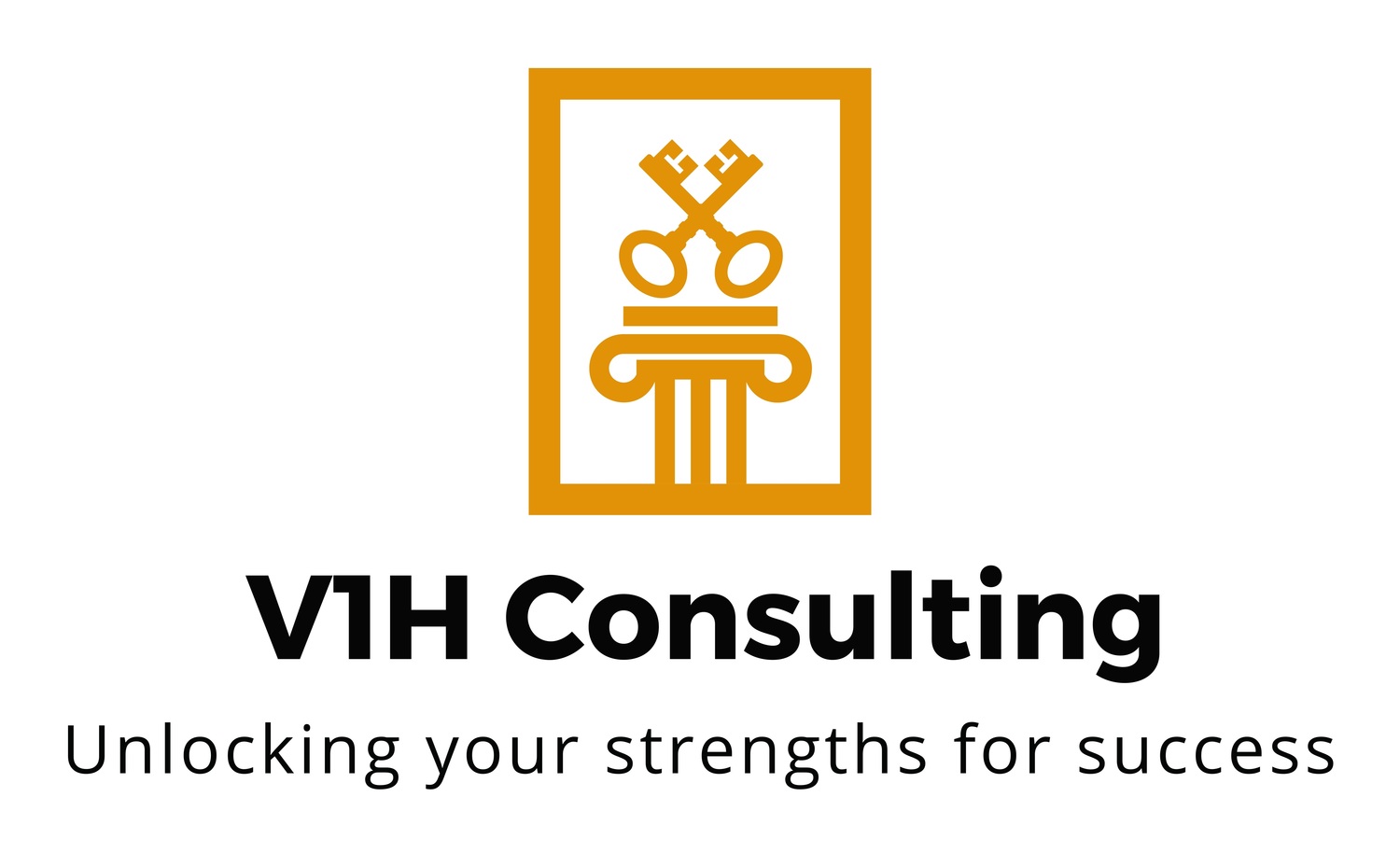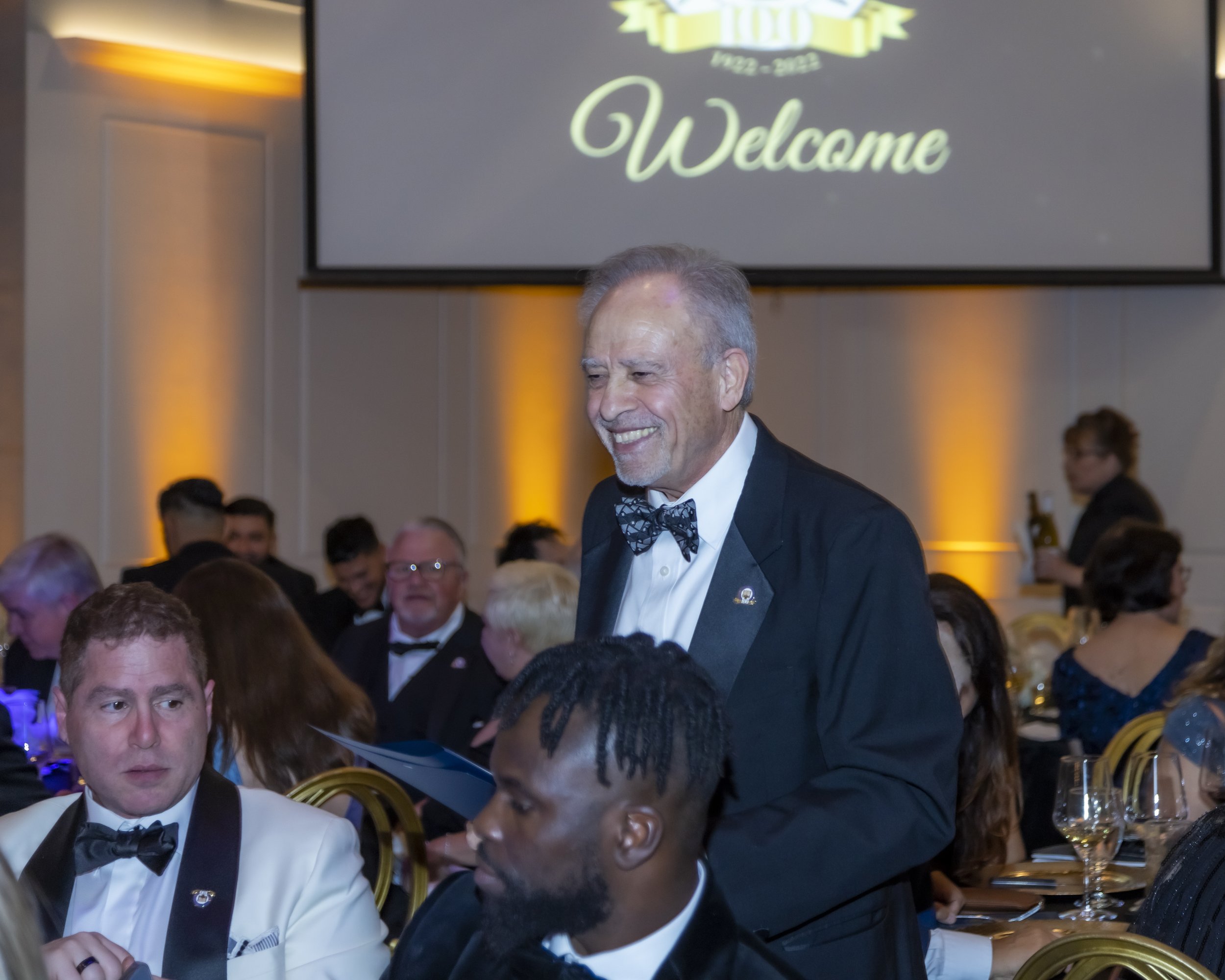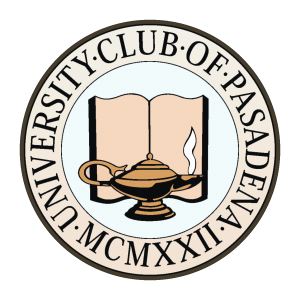An Interview with Dr. Phlunte Riddle
By Larry Hammond, Sr.
“Successful careers are not planned. They develop when people are prepared for opportunities because they know their strengths, their method of work and their values.” -- Peter Drucker
Dr. Phlunte’ Riddle
Dr. Phlunte’ Riddle (pronounced: fa-lôn-tay) is a lifelong community leader, educator, public safety executive and businesswoman as leader of her own consulting company, where she works with executives to solve organizational challenges and implement leadership development strategies.
Phlunte’ spent nearly 30 years honing her leadership skills at the Pasadena Police Department, in Pasadena, CA., moving through the ranks as a patrol officer, detective and community liaison. She broke barriers when she became the first African American female sergeant, lieutenant and then sworn Adjutant to the Chief of Police in the history of the Pasadena Police Department. After her career in the police department, she served as California Assemblymember Chris Holden’s District Director. She was later appointed by the Governor as a Board of Juvenile Hearings Commissioner. In addition to her lifelong work as a public safety officer, Phlunte’ was an adjunct professor at several universities.
This is a story of “The Evolutionary Journey of an Empathetic Leader – Dr. Phlunte’ Riddle.” The journey begins with understanding the story of her life. As leaders, your life story provides the context for your experiences, and through it, you can find the inspiration to make an impact in the world.
I had the opportunity to sit down with Dr. Riddle to get her perspective on leadership and to hear about her journey as a leader in her community. Her view on leadership is based on her lifelong experiences and her taking on many leadership roles throughout her illustrious career. Leaders, like Dr. Riddle, find their authenticity, by framing their life stories in ways which allow them to see themselves as individuals who can develop self-awareness from their experiences. She has demonstrated how she acts on her awareness by practicing her values and principles, sometimes at risk to herself.
She sees leadership as multifaceted. In so much as people lead differently in different situations; at home, at work and in their communities, she believes that in whatever forum in which one leads, one MUST have empathy to be truly successful. Her early years established a consciousness of how to interact with people and how to encourage them to go in the direction they need to go. She talks about her journey of over 46 years of marriage and 3 children, as a basis, of how she learned and grew and evolved as a person and in life.
Dr. Riddle says, “you don’t know what you don’t know” and it is through your life experiences you become enlightened.
The evolution towards excellent leadership is ever-changing. The obstacles and ups and downs can be significant teaching moments if you allow them to be. Leaders grow from their challenges, their mistakes, their failures, and their successes. Research shows how great leaders are made as they gradually acquire, during their lives and careers, the competencies that make them effective. For the most part, the brain masters the competencies of leadership – everything from self-confidence and emotional self-management to empathy and persuasion – through implicit learning. All this learning goes on tacitly, most of the time, without people even being aware they are mastering such lessons.
Her evolutionary journey in leadership started early in high school where she played on multiple sports teams. There, she demonstrated her leadership abilities by not participating in gossip and speaking up to help others who were being treated unfairly. Leadership is about doing what is right, it is knowing when to stand up for others and setting a good example and she realized this important leadership component in her formative years.
When you choose to learn from your upbringing, you learn who you are, your strengths and your weaknesses, your unique perspectives, and your blind spots. At a young age, she knew she had to help her single mom with raising the family. She started working in her early teenage years to help her mom. She married at the age of nineteen where she had to manage a home and raise a family. These life experiences taught her to make decisions built on her family values and the importance of keeping those principles foremost during her development. These morals dictated that she would not participate in certain activities which may put her future in jeopardy or represent herself or her family in a nonpositive light – this fundamental philosophy served as the cornerstone of her leadership journey and her development.
Dr. Riddle’s first awareness of her leadership competence came during her adolescence; in her first job with the CETA Program (Comprehensive Employment and Training Act). As the years went by, and as she continued to practice her skills, she became increasingly better at her craft. She used her newly found competence to the point of mastery by using her competency regularly and effectively. Being able to do this, offered her a fine-grain look at how leadership excellence develops in life.
A variety of role models helped to shape the leader she has become. Her mother was resilient and tenacious and had a determination which was unrivaled. She is not sure how her mother did what she did but her attributes taught her to exemplify those qualities in her life and they have served her well on her journey. Dr. Riddle jokingly muses about her older sister who sometimes showed her what not to do. While growing up, she would see her sister get in trouble and she learned she was not going to do those things. She found her own ways to get in trouble, but at least, she had learned what was off the table. Her sister’s positive guidance and council served as a vital roadmap which helped Phlunte’ to expand her perspectives and grow as a person. This is also true in learning how to lead. Most people tend to pick-up leadership lessons, haphazardly over the course of their life, repeating what they see others do. While it is certainly a good thing to model leadership skills from competent role models, Dr. Riddle says that you can also learn what not to do from leaders who demonstrate substandard leadership abilities. You can learn from some leaders and derive important knowledge from their mistakes and missteps.
Another important influence on Phlunte’ s life was her husband’s father. He served on the Pasadena police force for 27 years and gave her guidance and support. He taught her how to deal with challenges and how to contend with the people in the system. He also educated her, as a Black woman, on how to come to terms with discrimination within the police department. She learned from him her community policing skills and to see the people they served as equals. He taught her to understand how people come from different circumstances and situations and to not see herself as above them because of the position she held. As she shared this story, I gazed around the room in her home to take in the numerous family pictures on display when my eyes landed on a picture of her father-in-law in his uniform. The photo exhibited a presence of command, while also presenting a sense of compassion, as I watched her glow in an atmosphere of love and respect for a mentor who played such an important role in her success.
In her work environment of the time, there were still those that wanted to “take her out” (get her out of her position) or at least cause her embarrassment. It was through these challenges she leaned on the counsel of her mother and father-in-law who told her that she didn’t get to walk away and as her mother said to her, “have your pity party and get over it, keep pushing forward and get back in there.” As developing leaders, mentors, such as, Phlunte’ s mother, sister, and father-in-law play vital roles in grounding her leadership skills and expanding her self-awareness as well as how to treat others.
Another prominent mentor was a Black police chief who was brought into the department and was instrumental in helping her to navigate through the ranks. While she points out that this was a good thing it also created some tension among her colleagues who saw some of her moves in the department as “anti-them.” When she expressed her concerns to the new chief, he made it clear how many of those who were complaining had received help from others to get to where they were. She was reassured she had earned everything she had received and he made it clear, in no uncertain terms, that he was the chief and he made the decisions, not them.
There were others in the department, who did not look like her, that helped her and trained her to become the best peace officer she could be. As we all progress on our leadership treks, there are those who help us to move ahead and take us to new levels. These encounters not only aid us along the way, they teach us the importance of paying it forward and to encourage others to step up in their leadership roles.
Mayor Karen Bass and Dr. Phlunte’ Riddle
She did not take any of the genuine help for granted. Whether it was from her field training officers to the command staff who coached her along the way. She was young and naïve and said that anybody could have “run a game on her.” She shared a story of how in a certain area of town there was a lot of drug activity. Some veterans would get their prescription meds from a veteran facility. When it was suspected some of the vets were selling their drugs, she lamented how it could not be possible that these older gentlemen, who had served our country, could possibly be connected with drug sales – but, low and behold – they were. Needless to say, she is not gullible anymore. These kinds of experiences teach leaders to become more worldly and wise. Leaders must view all circumstances with an open and informed mind which helps them to make more cultivated decisions.
Dr. Riddle faced significant challenges as a Black woman in the police department. She had to manage situations that were seemingly designed to make her fail. She had to cope with outright discrimination and sexism. Nevertheless, she had to recognize how it was bigger than her and how she performed determined the future of those who looked like her. She had to find allies who would help her, and while she made some mistakes, those who did help her were instrumental in her maturation. While she did not necessarily realize the full impact of her actions, the weight of this responsibility let her know that her role in leadership expanded well outside of her personal circumstances. She did not always do a perfect job, but she could reflect on who defines perfection and what does it really mean. She gained knowledge through experiences, and educated herself to develop extensive core competencies.
She watched others in her world (those different from her) get accolades for actions she clearly deemed to be sub-par. She took advantage of opportunities to prepare herself through education, training, mentors, etc., which, in turn, helped her to help others. She realized that sometimes, you can only enact necessary impacts with a position of authority and you gain those positions through hard work and knowledge. Once given that authority, she realized how power is not granted to impose on other people in ways that subtract from them. Power should be used to positively amplify them – “leadership is not about me - if you go into leadership thinking it is about you, then you have already failed.”
“Leadership is not about being in charge it is about caring for those in your charge.”
--Simon Sinek
She shares the story of how she challenged a police chief on his decision to send a female officer home with no pay because she was pregnant and how this resulted in her being passed over for a promotion in which she earned. A new chief came onboard and promoted her six months later. She realized, at the time, the situation was painful and disappointing, but when you do the right thing, it will come around for the good. Dr. Riddle, while immersed in a culture some would argue is not necessarily geared towards being empathetic, realized she had to step up and infuse a cultural adjustment when necessary. She brought her empathetic leadership skills into the environment and evoked change in the organization while fostering a new way of leading.
Steadfastly, through her journey, her husband has been her rock of support. He had lived the life of policing through his dad and helped to keep her on point during her successes and her challenges. She had to learn how to compartmentalize. When she came home from whatever she had faced during the day she was a wife and mother and she had to leave the job concerns outside of the home. Her husband understood the complexities of the job and worked to keep balance in the family activities and provide comfort during the difficult times. Leaders must have these ancillary support structures to thrive. Leaders must embrace their family and friends as partners in their leadership journeys as they find their way.
Dr. Phlunte’ Riddle, Assemblymember Chris Holden and Congressman Adam Schiff
People have different strengths. Dr. Riddle points out how some of her co-workers were masterful at managing widgets, but deficient in managing people – they lacked empathy and understanding of people. They weren’t able to make the personal attachment which says - I see you! - I see your pain - I see what you are going through - I see that you need to be developed in these areas, I see that you are not being treated right, I see that you are not coming to work on time because you are taking care of your elderly mother who had dementia and you are being chastised for not being at your desk on time every day. Dr. Riddle firmly believes that as long as the work is completed it is important to have empathy while holding people accountable for their work product.
To Dr. Riddle, the lack of empathy makes the difference between being a marginal leader and being an exceptional one. She talked about how she would get cited during evaluations because she had used all of her sick leave during the rating period. She had three children, and they would often get sick in secession and this required her to take time off. “So how do you make a person feel when it appears you don’t care about their children?” While a leader need not make your priorities their priorities, but, they damn sure need to realize that your priorities are your priorities, like your children.” Understanding a person’s needs and priorities as a leader will help you to solidify your connections with others and these bonds will enhance your ability to provide outstanding leadership. She also found employees are more loyal and committed to leaders who care about them and hold them accountable.
You must see people individually. Stop and look at them – what do they need? What are they struggling with? If they are, they can’t be their best. Hear people, work with them to get them to function at their best. She is quick to point out that it is a dual responsibility. “I’m not dragging them up a hill, but I will show them the way and help them to make the climb.” She says, “you manage widgets, but you lead people – this is where the Emotional Intelligence (EI) comes in to play. Emotional intelligence is focusing on people. It’s not IQ vs. technical skills. Most effective leaders are alike in one crucial way: They all have a high degree of what has come to be known as emotional intelligence.
Daniel Goleman (1998) defined Emotional Intelligence (EQ) as the capacity to recognize one's own feelings and those of others, for motivating ourselves, and for managing emotions well in ourselves and in our relationships.
It means having a deep understanding of one’s emotions, strengths, weaknesses, needs and drives. People with a strong self-awareness are not overly critical nor unrealistically hopeful. Rather, they are honest with themselves and with others. They recognize how their feelings affect them, other people and their job performance. Self-awareness extends to a person’s understanding of their values and goals. They know where they are going and why.
Dr. Riddle says, one of her greatest strengths is her ability to listen clearly and not to formulate an opinion right away. People want to navigate through their problems in their own way. You help them to develop their own answer, which is something that came naturally to her and how to help people to use their own resources to solve their problems, skills she has learned to perfect.
She mentors people to meet them where they are. You cannot expect a 24-year-old to be in the same place as a 60-year-old. You must see people as individuals and if they are willing to learn, she is there to help. People trust what she says because they know she doesn’t just “shoot from the hip.” She has thought things through and has their best interest at heart. “People know that I am not being self-serving”.
In all of her leadership roles, she knows not going down rabbit holes as a challenge for her. People will put their issues on you. Because of her empathy, she would often take on too much of other people’s problems. She would spend hours trying to help people deal with their difficulties. The rabbit hole is not getting sucked into other people’s concerns and thereby taking away quality time from her other matters.
She says, “God gives everybody the same 24 hours. I have to know that I cannot do it all.” Her strength can also be her Achillies. Realizing this is a blind-spot for her, demonstrates her acknowledgement of this attribute as a potential weakness and contributes to her self-awareness as a leader. Self-awareness is a major component of Emotional Intelligence and an essential part of your leadership constitution.
Her leadership philosophy is framed in the knowledge, and wisdom that people come with different levels of ability. You must meet people where they are, and ask, “How can I help them?” To me, one of the best, well known, stories which exemplifies this notion of meeting people where they are is The Wizard of Oz. As the story goes, the scarecrow, the cowardly lion, the tinman and Dorothy travel to Oz, a magical city, to ask the Wizard of Oz to grant them a brain, courage, a heart, and a way home, respectively. When it is revealed that the wizard does not have magical powers to grant these wishes, the wizard, in turn, meets them where they are. The wizard’s solutions to their requests come in the form of encouragement and inspiration – a diploma for the scarecrow, a metal for the cowardly lion, a testimonial of virtuous deeds for the tinman and a ride, via hot air ballon, for Dorothy. The wizard’s wisdom taught them how true guidance comes from meeting people where they are, understanding their individual needs and helping them find their own way forward. And, while Dorothy missed the ride on the hot air balloon, she too, found it in herself and in her own strength and beliefs a way to go home.
Meeting people where they are means to help them to lift themselves up using their own strengths and talents. It means giving them the confidence they need to succeed. While the magical solutions always sound nice, they just aren’t realistic. The same is true in leading people – there is no magical solution meeting them where they are. It requires an empathetic connection.
In conclusion, the age-old question remains: Are leaders born or developed – Dr. Riddle believes that it is a bit of both. Are some people born with certain levels of empathy or do they learn it? There may be a genetic component to emotional intelligence, to be sure, but nurture, I believe, plays a major role as well. While some people may be better endowed with natural abilities, everyone can learn to improve.
As a leader, your most valuable resources are your time and attention. Where you place your focus – how you connect with people – how you show up and relate to others – matters more than ever. I believe that all of us have, at our core, the essence of leadership. This basic natural tendency can be revealed in business, sports, government, as a parent or a non-profit volunteer. However, the challenge is to understand where we can use our leadership gifts to serve others. When you discover how to incorporate learning into all aspects of your life, to develop it as a daily discipline and vital skill, you’ll grow your leadership abilities. Being able to turn effective learning into action takes insight and practice.
To step up to leadership, one must think like a leader. The way you think is a product of your past experience. The leader in which you become during your journey is intrinsically linked to your life experiences. Achieving the full leadership dynamic is an evolutionary process. It is a migration from hands-on control to the more subtle processes of thinking strategically, leading more authentically and leading with empathy. It is not a one-shot deal and it does not happen overnight. The transition is built from small changes and, in some cases, can be distinctly uncomfortable. The process is full of complications, false starts, setbacks and unanticipated turns. We start by doing, we reflect on our experiences and we rethink ourselves as depicted in “The Evolutionary Journey of an Empathetic Leader” as demonstrated by Dr. Phlunte’ Riddle.






































